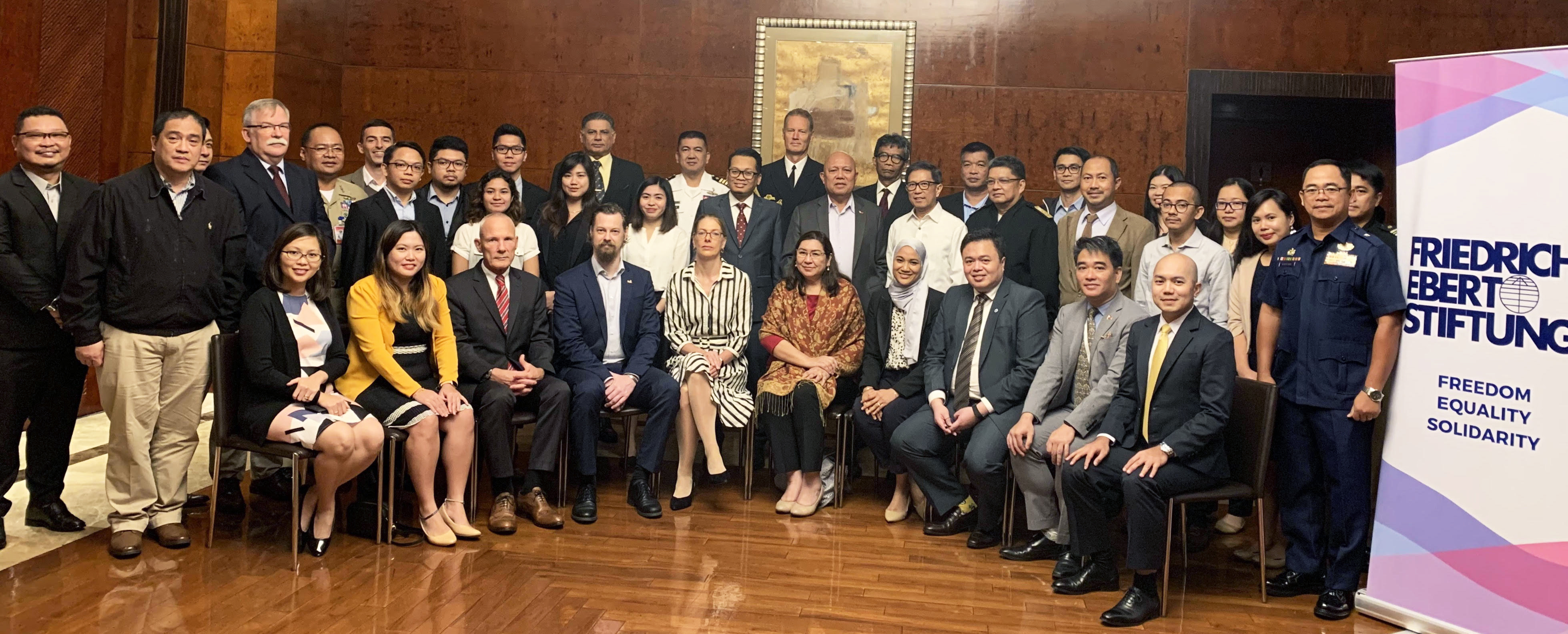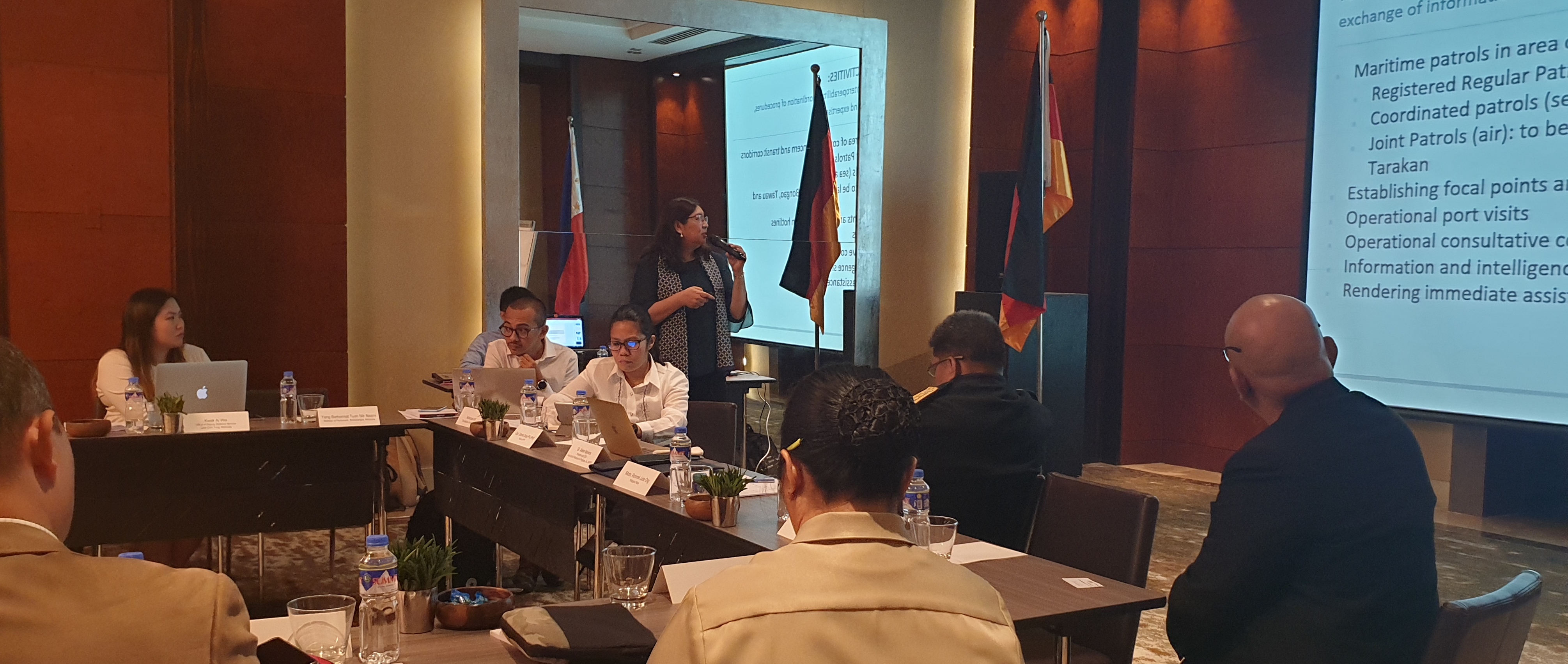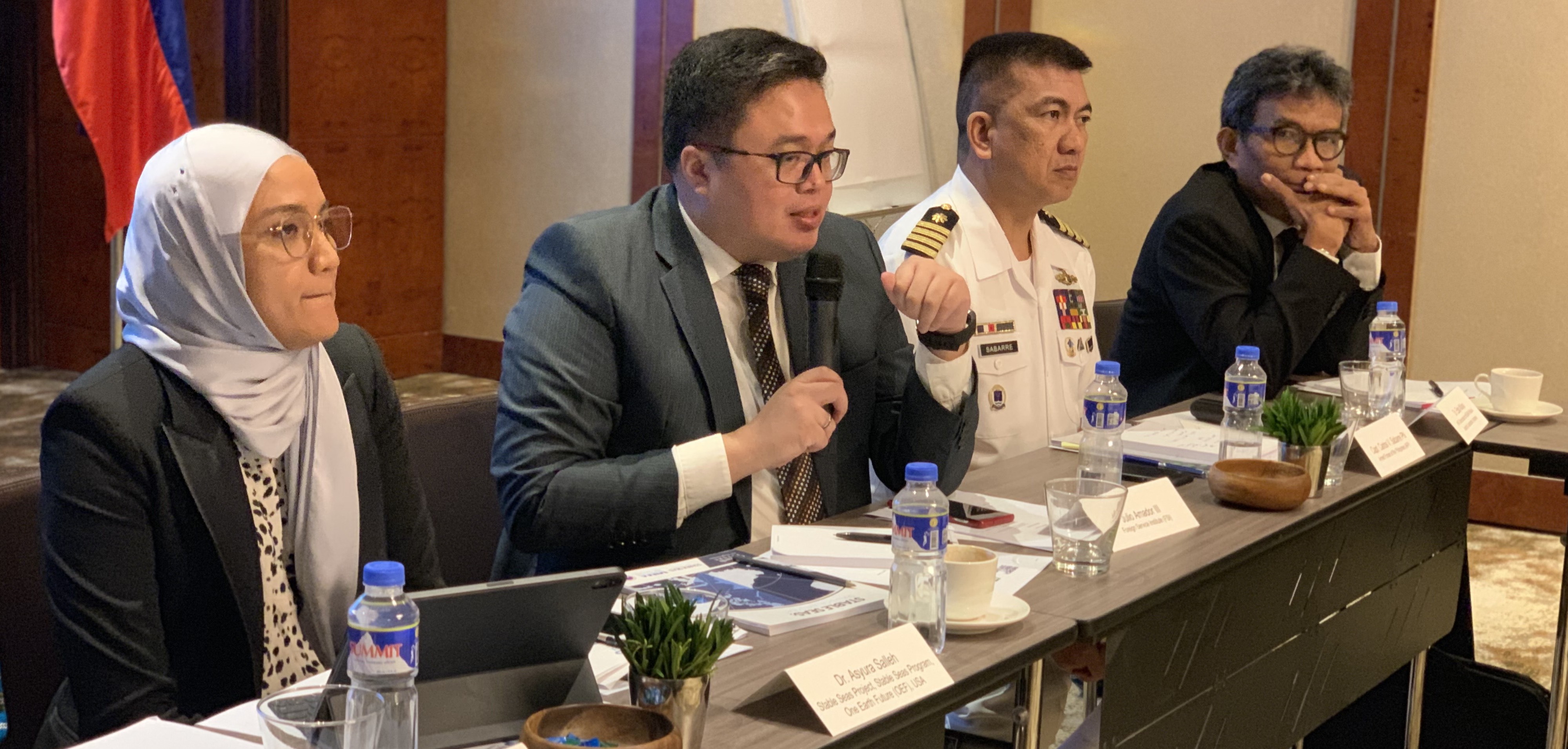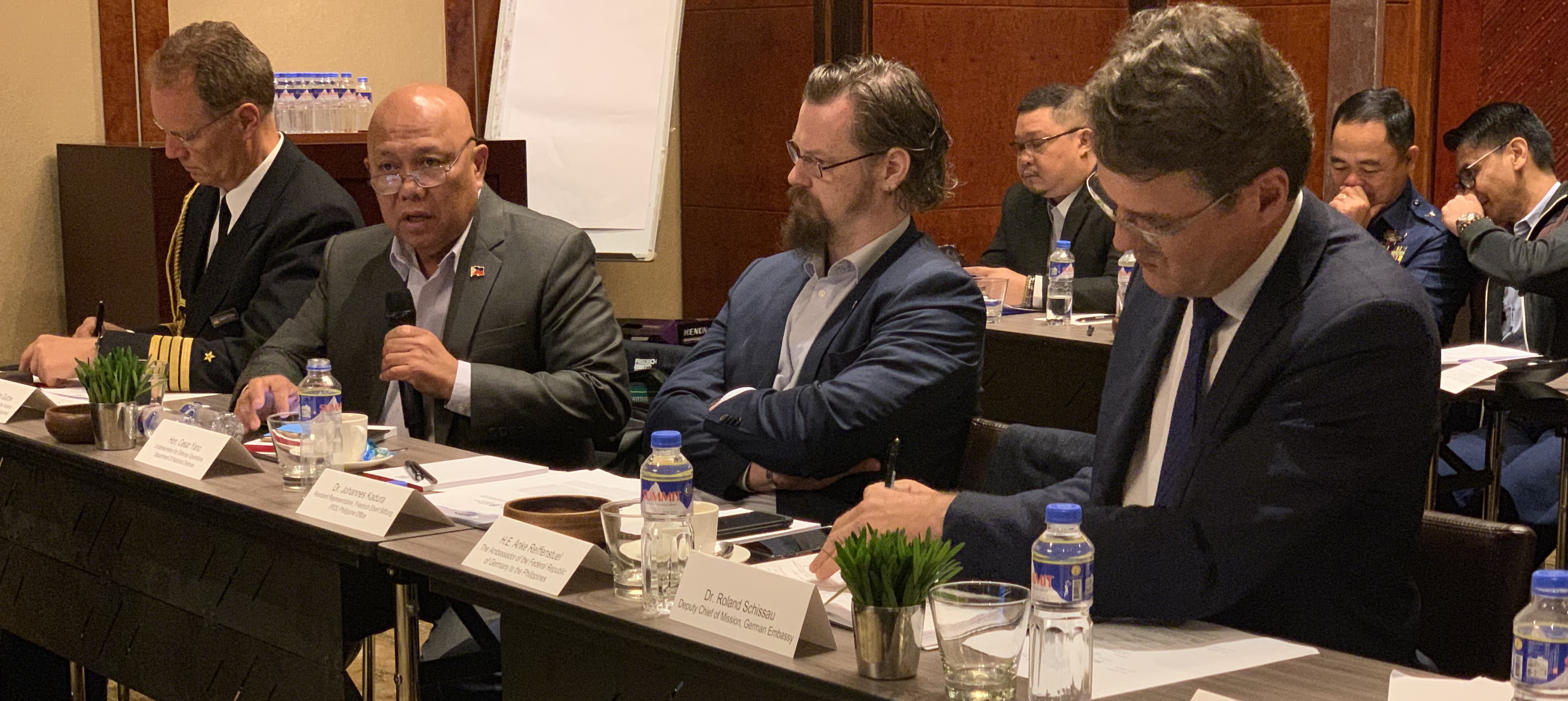Three years since the Philippines, Indonesia, and Malaysia signed the Trilateral Cooperative Arrangement (TCA) in response to a spike in kidnap-for-ransom incidents in the Sulu and Celebes Seas, a relative calm has returned to the waters straddling the borders between the three countries. Although the agreement is seen to be contributing to maritime security in the region, there are also some questions about its sustainability and significance.
Manila-based Asia Pacific Pathways to Progress Foundation, Inc. (APPFI) and the Philippine office of Friedrich-Ebert-Stiftung (FES), organized a Regional Forum on Maritime Security Cooperation in the Sulu - Celebes Seas, with a particular focus on the role that the TCA has played in ensuring peace and stability in the area. With the support of the Embassy of the Federal Republic of Germany in the Philippines, the forum was held in New World Manila Bay Hotel on September 2 and 3.

The speakers and participants of the FES Regional Forum. At the center (front) are H.E. Anke Reiffenstuel, Ambassador of the Federal Republic of Germany to the Philippines, and Dr. Johannes Kadura, Resident Representative of FES Philippines, with Dr. Aileen Baviera. APPFI Chairman Raphael Lotilla (second row, 6th from right) delivered welcome remarks.
In his keynote speech, Undersecretary for Defense Operations Cesar B. Yano discussed how the Sulu and Celebes Seas have become an area where the crime - terrorism nexus plays out, further sinking communities into poverty. He highlighted the necessity of international cooperation with neighboring countries and other partners, recognizing the transnational and trans-jurisdictional nature of maritime security issues. He also advocated for deeper and more comprehensive inter-agency coordination to optimize the deployment of the country's limited assets and to address the land-based roots of maritime crime and illicit activities.


Dr. Baviera presenting APPFI's preliminary research findings.
One highlight of the forum was the presentation by APPFI head Dr. Aileen Baviera, of the findings of an exploratory research on the political, legal, institutional, and technical challenges in the implementation of the TCA. This set the tone for a workshop that capped the forum, where participants identified ways forward for the improvement and institutionalization of the TCA, including the role of external partners in securing the area.


APPFI Fellow & PAEF Executive Director Julio Amador III chairing the first panel of the forum. Presenters during the panel are Dr. Asyura Salleh of One Earth Future Foundation (left) and Capt. Carlos Sabarre of the Armed Forces of the Philippines (right, in white). With them is Dr. Eddy Mulya of the Indonesian Ministry of Foreign Affairs.
The workshop participants found that lingering distrust among the three countries from territorial disputes, and lack of maritime law enforcement assets were among the issues to be resolved. Better research, data collection, and dissemination would help create reliable assessment instruments for the success of the TCA. The three countries should take advantage of the increased interest by outside partners to promote cooperation in training, information sharing, procurement of assets including intelligence, surveillance, and, reconnaissance (ISR) technologies, that would allow TCA countries to retain control over activities within the ambit of the arrangement.


During the open forum. (Left to right) German Defense Attaché Capt. Joachim Gutow, Undersecretary Cesar Yano, FES Philippines Resident Representative Dr. Johannes Kadura, and Deputy Chief of Mission Dr. Roland Schissau of the Embassy of the Federal Republic of Germany to the Philippines.
